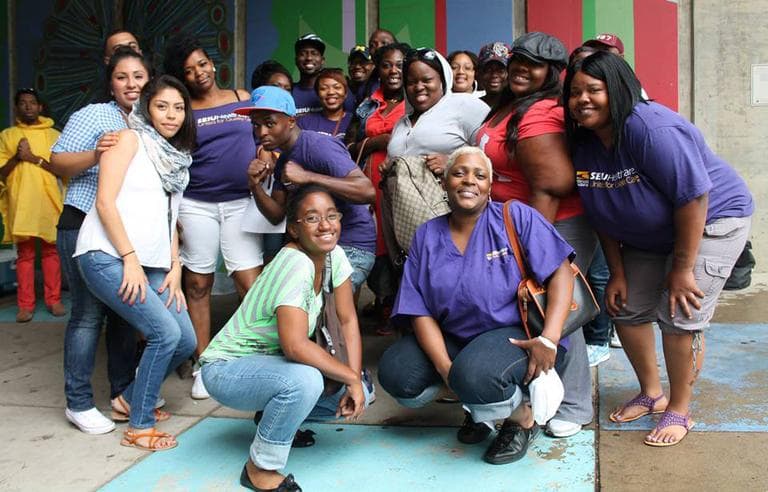Advertisement
New Generation Of Activists Continues King's Legacy
Resume
In the 1950s and ’60s, young people were on the front lines of the civil rights movement, fighting for desegregation and voting rights throughout the South.
Today, Martin Luther King, Jr.’s dream of equality resonates for many young people of color.
Kim Moore is the 28-year-old founder of Soul Revision Consulting, which provides leadership and organizing training for individuals and nonprofits. She became an activist because she lost many of her friends to gang violence.
Our job as young people is to make the impossible possible through collective struggle.
Austin Thompson
"I got to a point where I had cried all that I could cry," Moore told Here & Now, "I needed to play a different role this time."
Moor said that gang violence and the destruction it wreaks on communities of color is symptomatic of structural issues, including mass incarceration, the school-to-prison pipeline and black unemployment.
Moore says that the original civil rights leaders created a movement with very few resources, which inspires her to do even more.
"What [King] did wasn't a solitary event," Moore said. "Anybody should be able to do what he did, and do it better and go further with it."
Austin Thompson, is a 26-year-old "millennial coordinator" for the Service Employees International Union (SEIU).
He is attending the 50th anniversary commemoration today both to honor his grandparents who lived in the Jim Crow-era South and to look toward the future.
"It was about the next 50 years for me," Thompson said. "I'll be looking backward at my grandchildren, and I want to make sure the story I tell them can end on a lighter note than the story my grandparents are telling me now."
Thompson says that young people were behind the civil rights struggle then, and continue the march toward progress.
"People who lived through the times of segregation never ever imagined that we could have an African-American president," he said. "Our job as young people is to make the impossible possible through collective struggle."
Guests
- Kim Moore, 28-year-old founder of Soul Revision consulting, which provides leadership and organizing training for individuals and nonprofits. She tweets @SoulRevision.
- Austin Thompson, 26-year-old millennial coordinator for the Service Employees International Union. He tweets @BrotherAustin.
This segment aired on August 28, 2013.